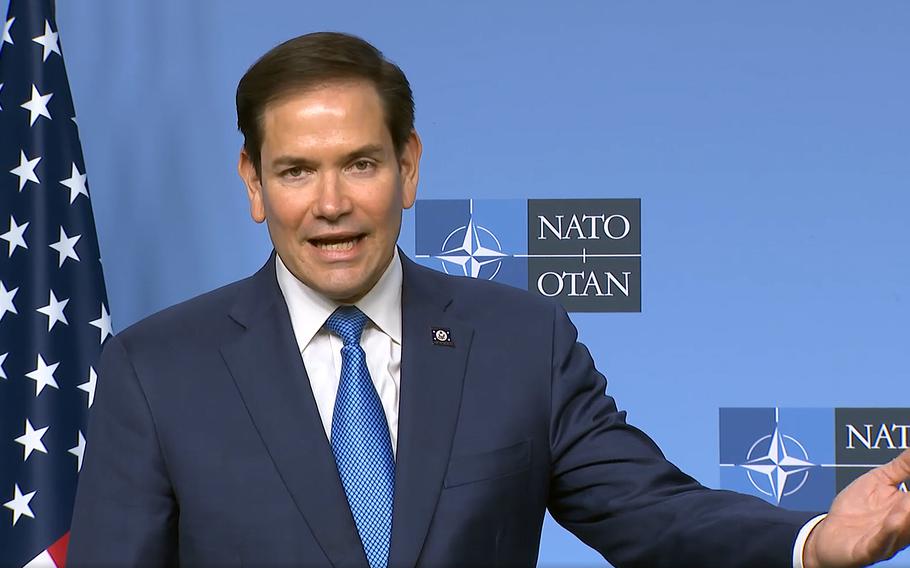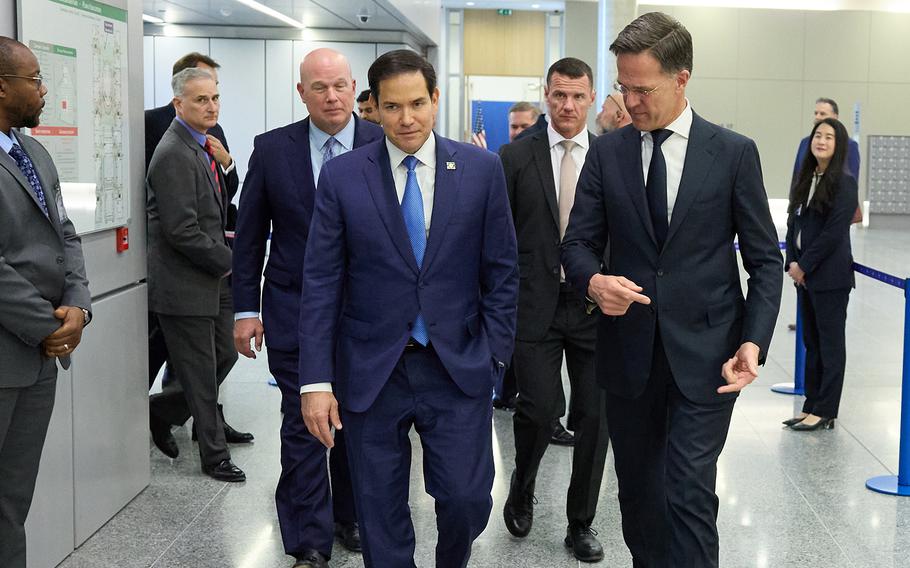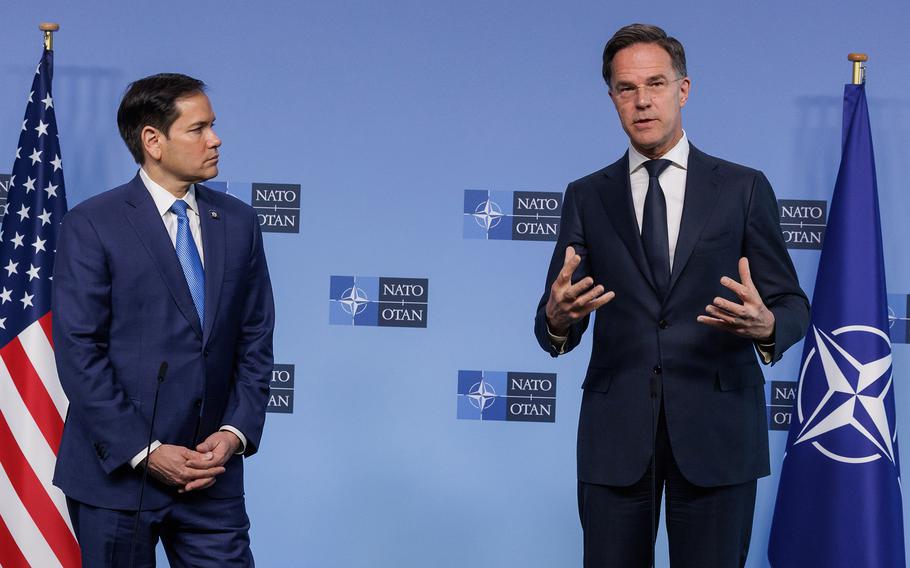
U.S. Secretary of State Marco Rubio speaks to reporters April 3, 2025, before a two-day meeting of NATO foreign ministers at the alliance's headquarters in Brussels. (Screenshot/NATO)
NATO countries must show credible plans for meeting a U.S. demand for greater defense spending, the top American diplomat said Thursday in Brussels.
Secretary of State Marco Rubio, who made his debut at NATO headquarters for high-level talks, dismissed angst about a potential American withdrawal from the alliance as “hysteria and hyperbole.”
President Donald Trump isn’t “against NATO,” Rubio said at the start of talks. “He is against a NATO that does not have the capabilities that it needs to fulfill the obligations that the treaty imposes.”
But Trump’s call for members of the bloc to spend 5% of gross domestic product on defense, up from the current benchmark of 2%, appeared nonnegotiable.
“No one expects that you’re going to be able to do this in one year or two, but the pathway has to be real,” he said, adding that the United States also will need to increase its own defense expenditures.

U.S. Secretary of State Marco Rubio, left, and NATO Secretary-General Mark Rutte walk through the alliance's headquarters in Brussels on April 3, 2025, before a two-day meeting of NATO foreign ministers. (NATO)
Rubio wasn’t clear about whether that means Pentagon spending levels would need to rise all the way to 5%, which would push the Defense Department budget over $1 trillion. He also didn’t elaborate on consequences should members refuse to reach the higher spending mark.
Still, there isn’t an indication that all the alliance’s 32 members are onboard with such a dramatic increase in spending. The differing outlooks in the bloc are closely related to the threat perceptions of each country.
Worried about Russian aggression, some members on NATO’s eastern flank have ramped up spending well above the 2% mark. Poland already is at 5% of GDP, for example.
Italy, Portugal and Spain, on the other hand, are yet to hit even the 2% level.
Rubio said political leaders need to adapt to the changed security environment and the hard budget choices that come with it.
“This is a collection not just of partners and allies, but of advanced economies, of rich countries who have the capability to do more,” Rubio said.
He said tradeoffs, such as scaling back on social welfare safety nets, could be required.
“We have to do it every single year in our country,” he said. “I assure you that we also have domestic needs, but we’ve prioritized defense because of the role we’ve played in the world. And we want our partners to do the same.”
The Trump administration’s calls for Europe to be less reliant on the American military for defense are prompting a rethink of arms purchases from the United States by some NATO members.

U.S. Secretary of State Marco Rubio listens to NATO Secretary-General Mark Rutte speak April 3, 2025, before a meeting of the alliance's foreign ministers at its headquarters in Brussels. (NATO)
But Rubio has sent a message that excluding U.S. companies from European military tenders would draw displeasure from Washington, according to a Reuters report that cited two sources familiar with the matter.
And at the meetings in Brussels, Rubio plans to make allies aware that the White House expects European countries to continue buying American weaponry, a senior State Department official told Reuters.
Rubio’s comments come as the United States aims to shift more of its military focus to the Asia-Pacific region to counter China’s growing power.
Defense Secretary Pete Hegseth, during his first visit to NATO headquarters in February, told leaders the expectation is that European allies will be able to provide the bulk of the security of the Continent.
While there are no immediate plans to cut American troop levels, the force posture in Europe is under review, Hegseth has said.
What isn’t clear is how large a potential reduction in the American military presence in Europe could eventually be and how soon it could happen.
Russia’s full-scale ground war “in the heart of Europe” is “a reminder that hard power is still necessary as a deterrent,” Rubio said.
“We want NATO to be more viable,” he added. “And the only way NATO can get stronger and more viable is if our partners, the nation states that comprise this important alliance, have more capability.”